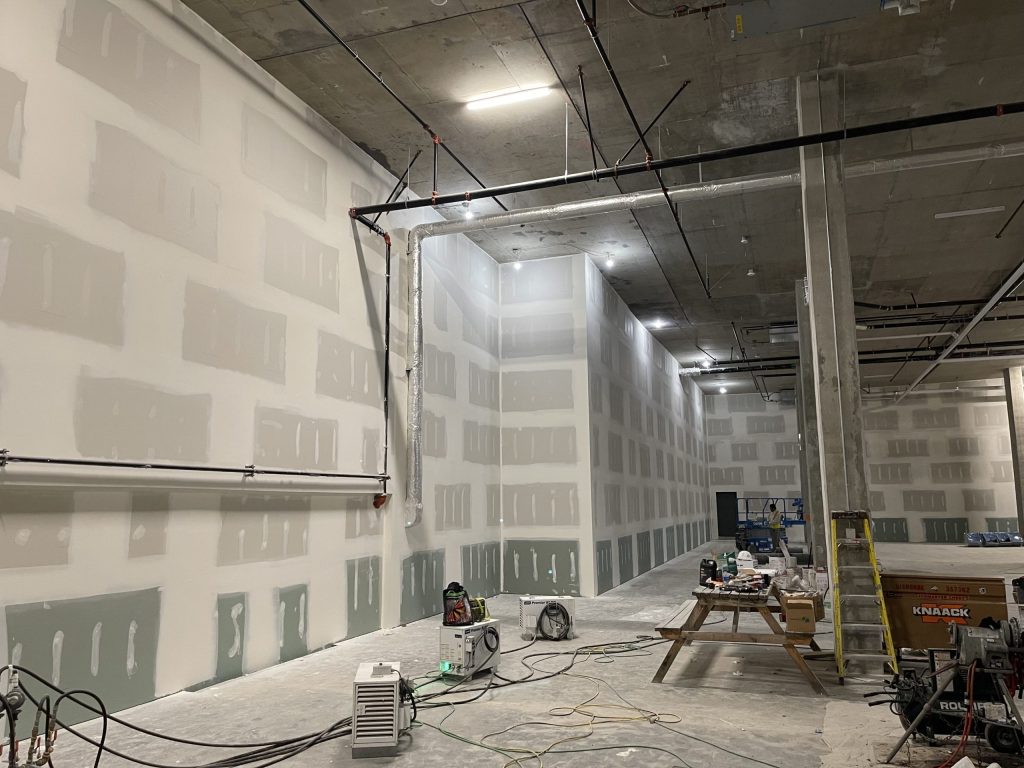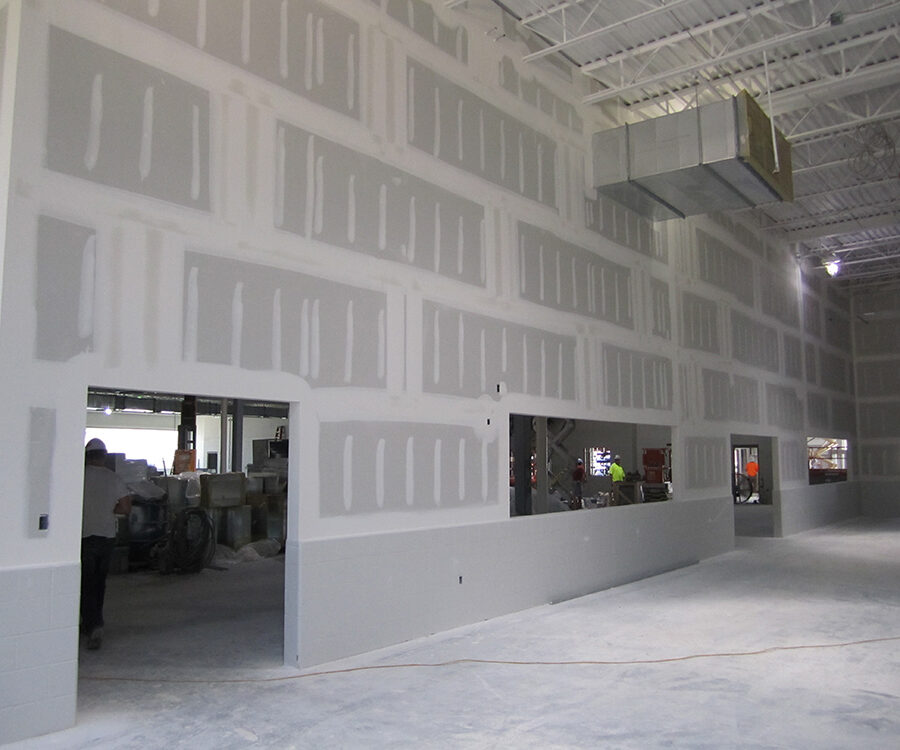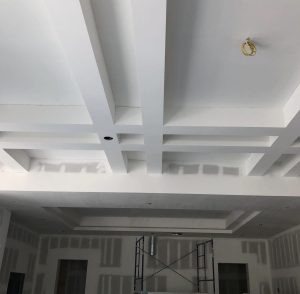Hiring a Drywall Contractor for Large Commercial Projects: What to Consider
Why Choosing the Right Drywall Contractor Matters
When planning a large commercial project, drywall installation plays a critical role in achieving a high-quality finish. Whether it’s an office complex, retail space, hotel, or multi-family housing development, selecting a professional drywall contractor ensures efficiency, durability, and top-tier results. With commercial drywall installation requiring specialized skills, high-quality materials, and strict adherence to safety regulations, hiring the right contractor is essential to the success of your project.
Key Factors to Consider When Hiring a Commercial Drywall Contractor
1. Experience with Large-Scale Commercial Projects
Not all drywall contractors are equipped to handle commercial projects. Large-scale drywall installation requires expertise in working with complex designs, expansive spaces, and high ceilings. Look for a contractor with a strong portfolio of completed commercial projects, demonstrating their ability to manage large-scale drywall installation efficiently.
2. Licensing, Certification, and Insurance
A reputable commercial drywall contractor should have the necessary licenses and certifications required by local and national regulations. Proper licensing ensures compliance with industry standards, while insurance (including liability and worker’s compensation) protects you from potential legal and financial risks in case of accidents or damages during installation.
3. Project Management Capabilities
Managing drywall installation in a commercial project requires coordination with architects, engineers, and other subcontractors. A skilled drywall contractor should be able to adhere to project timelines, meet deadlines, and work within budget constraints. Look for companies with a proven track record of delivering projects on time without compromising quality.
4. Quality of Workmanship and Materials
The durability and finish of drywall in commercial spaces depend on the quality of both materials and workmanship. Ensure the contractor uses premium drywall products, including fire-resistant, moisture-resistant, and soundproof drywall where necessary. Proper installation techniques, including precise framing, joint sealing, and finishing, contribute to a smooth and flawless appearance.
5. Compliance with Safety Standards
Commercial drywall installation involves working in environments with high ceilings, scaffolding, and heavy materials. A reliable drywall contractor prioritizes safety, follows Occupational Safety and Health Administration (OSHA) guidelines, and provides regular training for their crew to minimize workplace accidents.
6. Ability to Handle Specialized Drywall Needs
Commercial projects often require specialized drywall solutions such as:
Fire-rated drywall: Essential for meeting fire codes in office buildings, hotels, and high-rise apartments.
Soundproof drywall: Used in theaters, conference rooms, and hospitals to reduce noise transmission.
Moisture-resistant drywall: Ideal for restaurants, kitchens, and restrooms.
Custom drywall designs: Incorporating curved walls, coffered ceilings, or recessed lighting features. Ensure your contractor has experience with these specialized drywall installations to meet your project’s requirements.
7. Workforce Capacity and Availability
Large commercial projects require a well-trained and adequately staffed workforce. A drywall contractor should have enough skilled professionals to handle large-scale drywall installation without delays. Ask about their availability and ability to scale their workforce according to project demands.
8. Use of Advanced Drywall Installation Techniques
Modern commercial projects benefit from innovations in drywall installation. Look for contractors who utilize:
Prefabricated drywall panels to speed up installation time.
Automated drywall tools for precision cutting and finishing.
Green building materials for sustainable and energy-efficient construction.
9. Reputation and Client Reviews
A contractor’s reputation speaks volumes about their reliability. Read online reviews, request client references, and check past project testimonials to gauge their professionalism and quality of service. Reputable drywall contractors often have strong relationships with builders, developers, and architects, reflecting their credibility in the industry.
10. Transparent Pricing and Detailed Estimates
Clear, upfront pricing is crucial when hiring a drywall contractor for a commercial project. A professional contractor provides a detailed estimate that includes:
Labor costs
Material expenses
Timeline projections
Additional costs for specialized drywall installation Avoid contractors who offer vague or unusually low estimates, as this could indicate hidden costs or subpar workmanship.
Common Challenges in Commercial Drywall Installation and How to Overcome Them
Tight Deadlines and Scheduling Conflicts
Commercial projects often have strict deadlines that must be met. To ensure smooth drywall installation, work with a contractor who offers detailed project scheduling and coordination with other trades, preventing costly delays.
Meeting Building Codes and Regulations
Compliance with building codes is non-negotiable in commercial construction. Choose a drywall contractor familiar with local regulations and experienced in obtaining necessary permits for drywall installation.
Ensuring Consistent Quality Across Large Spaces
A common issue in large-scale drywall projects is maintaining uniform quality throughout. High-quality drywall contractors use experienced supervisors, standardized installation techniques, and thorough quality control inspections to ensure flawless results across the entire project.
Managing Budget Constraints
Cost overruns can derail a commercial project. A skilled drywall contractor provides accurate cost assessments, value engineering options, and recommendations on cost-effective drywall solutions without compromising quality.
The Benefits of Hiring a Professional Drywall Contractor for Commercial Projects
Efficiency: Experienced contractors complete drywall installation quickly and accurately, keeping projects on schedule.
High-Quality Finish: Proper drywall finishing enhances the professional appearance of commercial spaces.
Cost-Effective Solutions: Professional contractors help optimize material use, reducing waste and unnecessary expenses.
Compliance and Safety: Licensed professionals ensure adherence to safety protocols and building regulations.
Long-Term Durability: Properly installed drywall lasts longer, minimizing future maintenance costs.
Final Thoughts: Making the Right Choice
Hiring the right drywall contractor is a crucial decision that impacts the success of your commercial project. By considering experience, licensing, project management skills, safety compliance, and quality of workmanship, you can ensure a smooth and professional drywall installation process. Whether you’re constructing a new office building, retail space, or hotel, investing in a skilled drywall contractor guarantees a superior finish, timely completion, and long-lasting results.
For professional drywall installation in commercial projects, partner with industry experts who understand the unique demands of large-scale construction. A reputable contractor ensures efficiency, quality, and compliance, making your project a success from start to finish.







